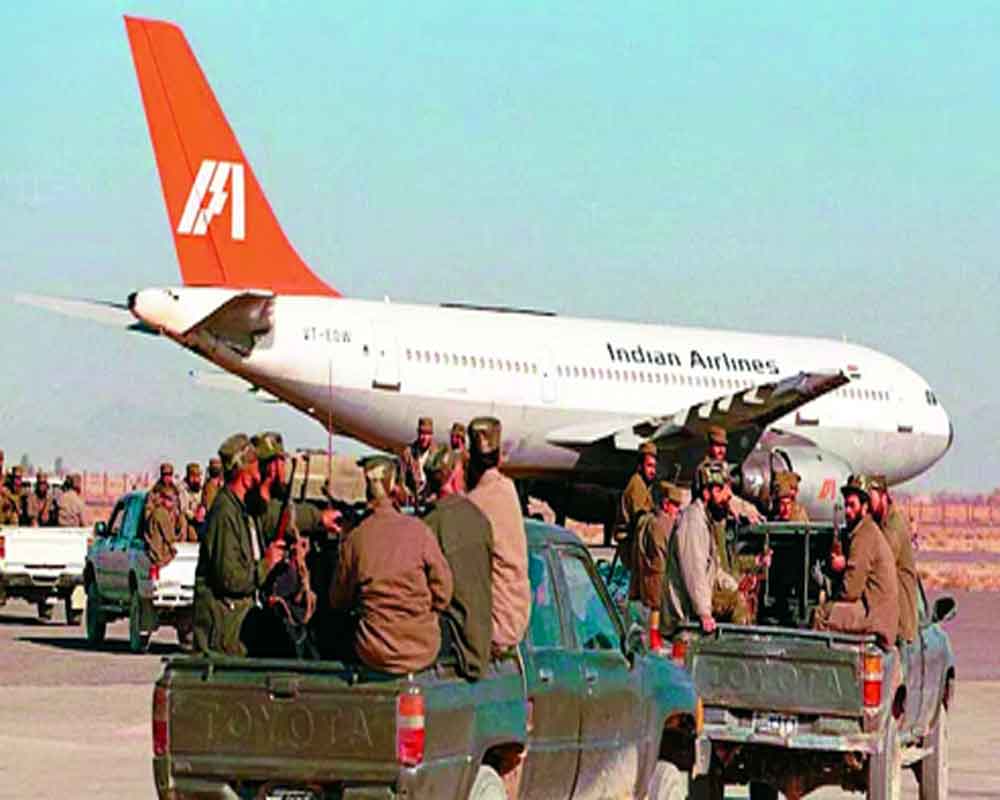The web series ‘IC-184: The Kandahar Hijack’ has reignited debate over the moral and strategic dilemmas faced during hostage crises
Web series IC-184: The Kandahar Hijack, has triggered debate on the complexities and ‘greys’ that accompany such incidents. Beyond obvious things like the lack of coordination, responsiveness or even allowing the flight to take off from Amritsar – one important query is if India did wrong in negotiating with terrorists. Given the handiwork of these released terrorists in the subsequent terror attacks, the question acquires even gravity. However, beyond the simplistic and binary ‘yes’ or ‘no’ position that is often postulated in the argument, lies the necessity of nuance in attempting to answer the same. It is universally agreed that negotiations with terrorists are a bad idea, however, sometimes, the consequences of not negotiating can have far more debilitating and costly consequences.
Sifting the wheat from the chaff of the supposed ‘no-negotiation’ stance of some countries (as often bandied) is important. It is frequently argued that countries like Israel or the United States of America do not negotiate with terrorists. It is further claimed that because of such an unbending posture, the Israelis and Americans avoided being taken as hostages. But such beliefs are untrue, misplaced, and belie the wheels-within-wheels of the American or Israeli reality, beyond the publicly stated position of ‘no-negotiation’.
It is the worst-kept secret that such countries have funnelled money through proxies, ‘friendly countries’, or even masked the same as ‘aid’ to secure their citizens, whilst maintaining the official stance.The Iran-Contra affair (1981-86) during the Reagan era wherein American hostages held by the Lebanese group, Hezbollah, were exchanged for weapons for Hezbollah itself, exemplifying the deals cut beyond the public gaze. As recently as 2014, the Americans had released five Taliban prisoners from Guantanamo, to secure an American hostage.
Last August, the United States is believed to have unfrozen $6 billion of Iranian funds in South Korean banks to secure the release of five US citizens. It is now argued that the same money could have been invaluable for the cash-strapped Iranians (widely believed benefactors of Hamas) in launching the subsequent ‘7th Oct’ attack on Israel. Israelis themselves are the masters of the backdoor negotiations, irrespective of the belligerent stand adopted for public consumption. In the Gilat Shalit (Israeli prisoner) exchange of 2011, it is believed that Israelis released 1027 prisoners who were held in jails. Even now as the bludgeoning of the Gaza Strip continues, the Israelis in parallel (and in support of the Biden administration) are still negotiating with Hamas for the release of their citizens held hostage. Often, the aggrieved government can end up losing a lot of leverage and lives when they refuse to engage with bad actors. Negotiations help immediate outcomes, buy crucial time for alternate reactions, and most importantly, help establish critical information and ‘leads’ about the captors that could be invoked, productively.
Lastly, a well-managed ransom payoff (with ‘marked’ bills and telltale trails) can also lead to discovering broader networks and bases to take down the terror infrastructure, subsequently. Negotiations or engagement does not have to be tantamount to surrender or even a ‘bad deal’, necessarily. From the post-released activities of the three terrorists in the IC-814 case, it was a costly ‘deal’ – but was there an alternative? The hijacked plane was parked in the backyard of Pakistani ISI’s supported Afghan base (at least then) with 158 precious lives (not including the 5 terrorists).
The terrorists in this case (under the direct supervision of the ISI and Taliban) were not exactly known to be reasonable, and if anything, had given a glimpse of their intent with the brutal and fatal stabbing of passenger, Rupin Katyal. Even an Entebbe-like commando operation using Indian Special Forces was impractical and fraught with additional risks. With the clear intention of harming Indian interests without an iota of any fear of getting caught (given the location) – the risk to the lives of all passengers and crew of IC-814 was not possible, but imminent.
The calculation and opportunities would have been far more creative with possible solutions, had IC-814 been held up in Amritsar, as opposed to Kandahar. Could India have forsaken the lives of its citizens? Has any other country ever forsaken lives in similar circumstances? Did the USA attempt negotiating with the Iranian authorities when its Embassy staff was held hostage or did it steadfastly hold to the ‘no-negotiation’ posture? The ‘no-negotiation’ is more of an ideal, but a fuzzy line, practically. It is a deterring policy but has never been an ironclad law, anywhere in the world. However, countries like Israel (or even India) do convey behaviorally is the guarantee of serious reprisals and redeeming their losses.
For example, ‘Operation Hot Pursuit’, the cross-border operation against NSCN-K insurgents in Myanmar ‘normalised’ the expectation for bad actors, hereinafter – this, when done systematically, surgically and purposefully conveys solid sovereign intent. So, there is no silver bullet or inviolable guardrails in tackling terror, except adapting and responding according to the situation, whilst ensuring the overall objectives are not lost to inflexibility, weakness, or indecision. IC-814 was indeed a lapse of immense proportion but the complexities of the eight-day ordeal necessitated negotiations in that specific case, as insisting any other way is easier said than done, as instructed by history anywhere in the world.
(The writer, a military veteran, is a former Lt Governor of Andaman & Nicobar Islands and Puducherry. The views expressed are personal)
























